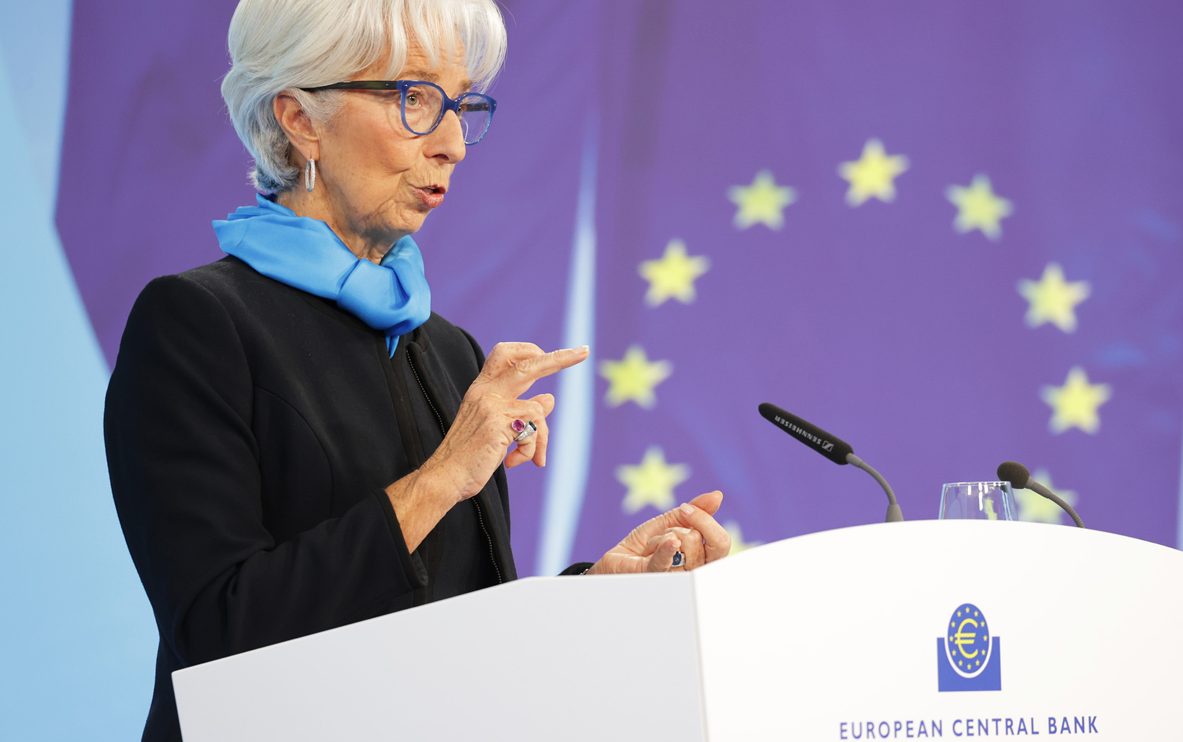Wed Mar 09, 2022
One of the Toughest Challenges for the European Central Bank
In international markets, stress is at the top due to the geopolitical uncertainties in the shadow of inflation and market participants turned to the European Central Bank's (ECB) second monetary policy meeting of the year. At the 2-day meeting, which will end tomorrow at 14:45 (GMT+2) there is a strong pressure on the Council members due to the reflections of inflation and inflation expectations and geopolitical uncertainties caused by Russian invasion of Ukraine.
As a result of February meeting of the ECB, the interest rate on the main refinancing operations and the interest rates on the marginal lending facility and the deposit facility remained unchanged at 0.00%, 0.25% and -0.50% respectively. ECB Governing Council noted that net asset purchases under the PEPP will be conducted at a lower pace than in the previous quarter and net asset purchases under the PEPP will be discontinued at the end of March 2022. In addition, Governing Council stated that monthly net purchases under the APP will amount to €40 billion in the second quarter of 2022 and €30 billion in the third quarter. From October onwards, the Governing Council would maintain net asset purchases under the APP at a monthly pace of €20 billion.
These policy decisions issued by the ECB should be revised now. It seems likely that the inflation pressure caused by the supply bottlenecks caused by the pandemic in Europe will become worse due to the commodity prices rising aggressively as a result of the invasion of Ukraine. The risks of disruption in supply chains due to the fact that Russia, which gets the third largest share on trade within the European continent, is facing harsh sanctions, are also a downward factor in the recovery of the European Union economy.
On the other hand, a global tightening trend is prevailing, led by the North American central banks. The countdown to March meeting of the Federal Reserve, which estimates that the economic impact of the Ukrainian crisis will be limited, started and prominent central banks such as Canada and the United Kingdom in the G–20 also entered into a cycle of monetary tightening. This makes it very difficult for the ECB to move beyond the point where it will start the tightening process. As a matter of fact, the risk of a delayed tightening means a weak euro and additional inflationary pressure.
To sum up, it is possible that the ECB will argue that it is too early to clearly assess the impact of the Russia –Ukraine conflict on the European economy and take necessary steps against it. However, upcoming price pressures may force the Governing Council members to end asset purchases in the Q2 or Q3 of 2022 with new projections, which are expected to last at least until October. Taking into account the uncertainties, ECB President Christine Lagarde, who will speak today at 15:30 (GMT+2), may take on the task of controlling the expectations for a rate hike that is on the agenda for the first time in more than a decade on the path of normalization.
